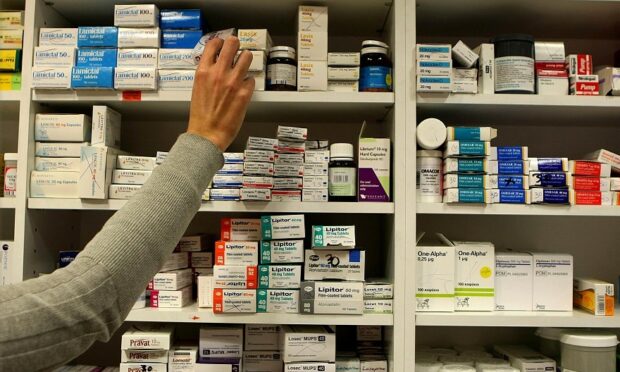The use of antidepressants in the north and north-east of Scotland has soared by more than 50% in the last five years.
Almost 900,000 mood enhancing drugs were distributed by health boards across the region last year, compared to fewer than 600,000 in 2009/10.
More than 10% of people in the north and north-east took the antidepressants in the last year, according to the “extremely alarming” figures.
Meanwhile, a total of 814,181 people were prescribed the drugs across the country, an increase of almost 30% in the last five years.
Opposition politicians slammed the SNP over the figures, which the Scottish Government had pledged to reduce.
Scottish Conservative health spokesman Jackson Carlaw said: “This incredible increase over the years in antidepressant use is extremely alarming.
“Years ago the SNP pledged to stop this rise, yet it hasn’t even been able to make a dent in it.
“There’s no doubt these drugs have a place in addressing mental health issues.
“But we urgently have to look at better alternatives than simply parking people on medication in the hope things don’t get any worse, with no aspiration for complete recovery.”
Scottish Liberal Democrat health spokesman Jim Hume said antidepressants can play “an important role” in helping people struggling with mental ill health.
“But the fact that we have seen such substantial increases in prescriptions raises real concerns over whether this reflects shortages in other services,” he said.
“If doctors are prescribing anti-depressants because they feel they have no other option then this is a real problem.”
Minister for sport, health improvement and mental health, Jamie Hepburn, defended the government’s record.
He said: “People with mental illness should expect the same standard of care as people with physical illness and should receive medication if they need it.
“Any prescribing is a clinical decision for a patient’s doctor and there is good evidence that GPs assess and treat depression appropriately.
“We have seen more people being prescribed antidepressants as a result of reduction in stigma attached to mental health, and better diagnosis and treatment of depression by GPs.
“This sits alongside a 17.8% drop in suicide rates in Scotland between the periods 2000-2004 and 2010-2014.”
